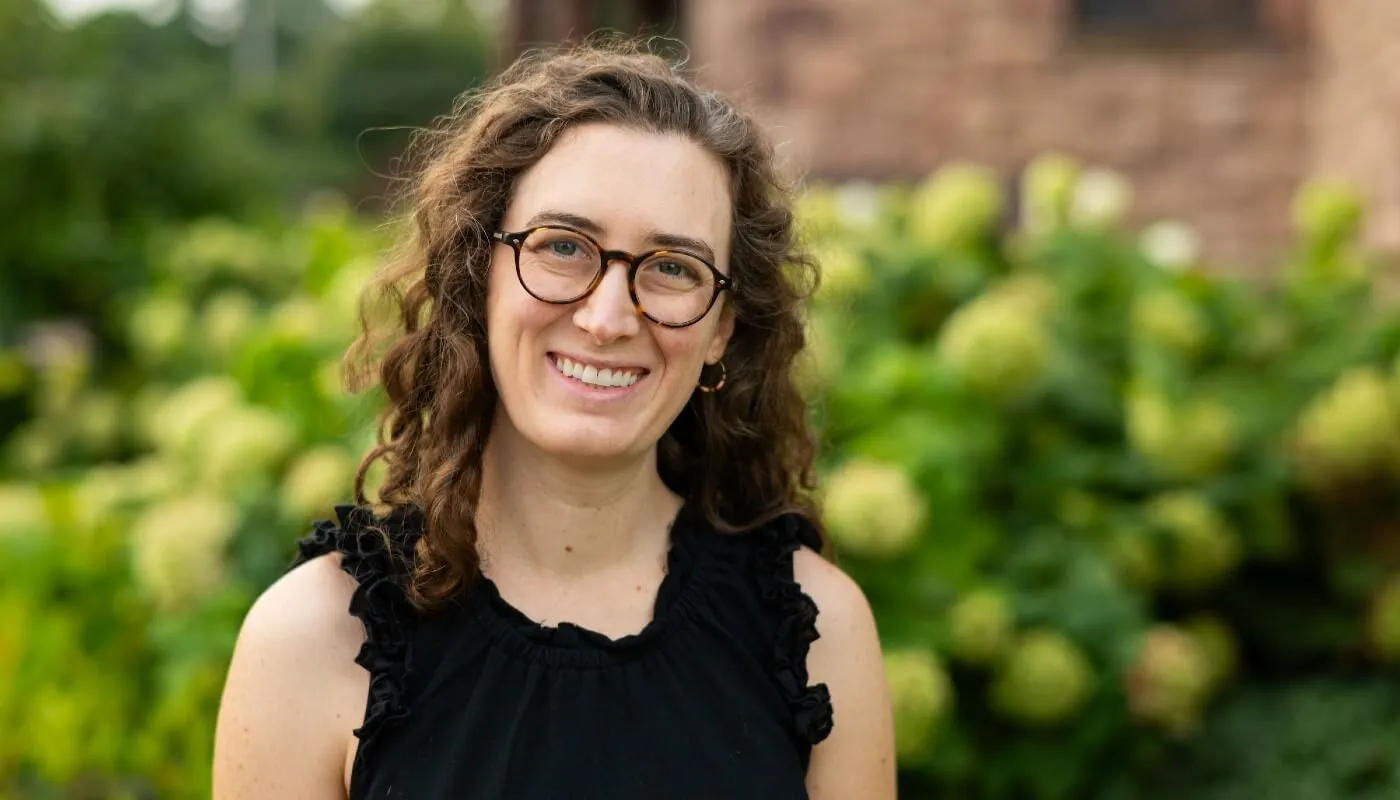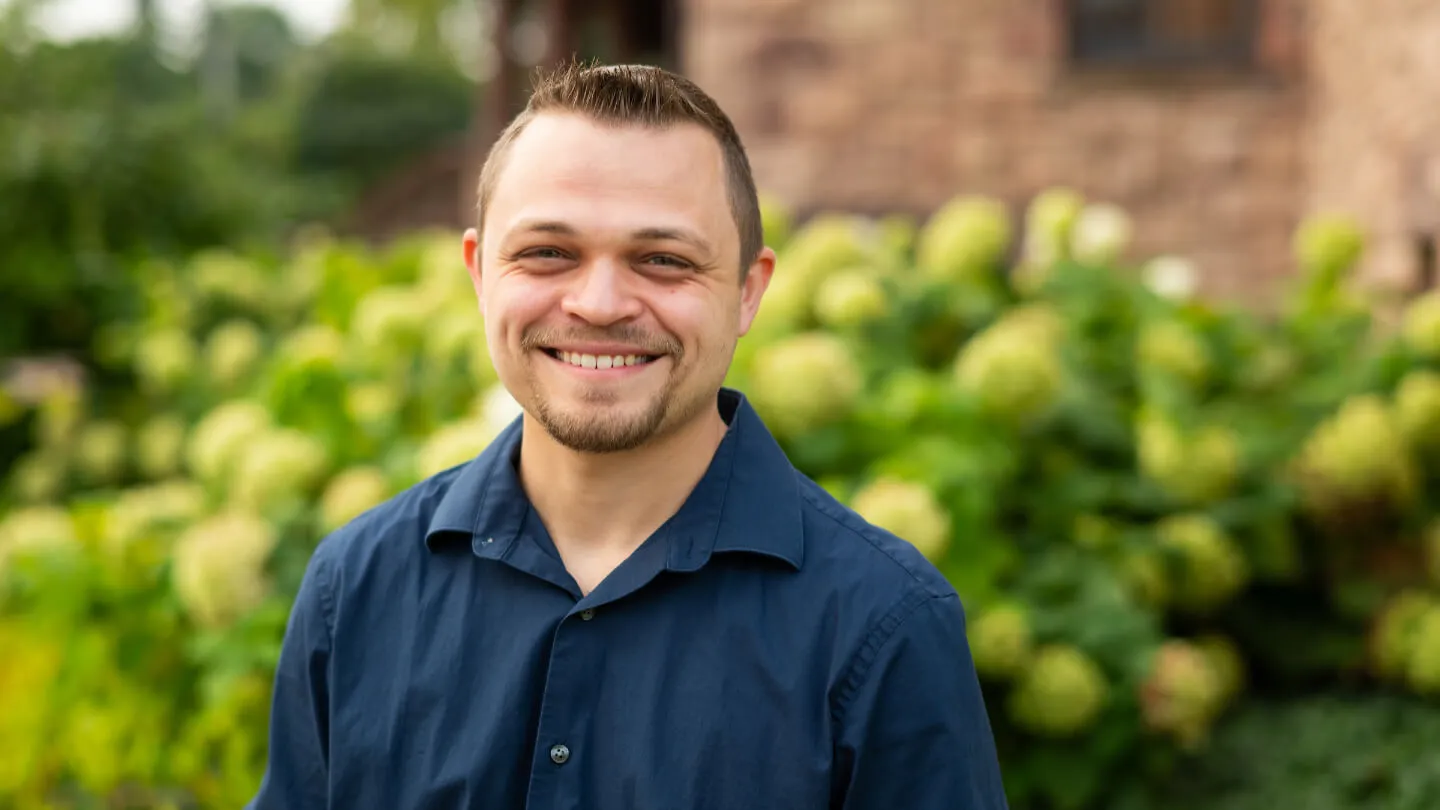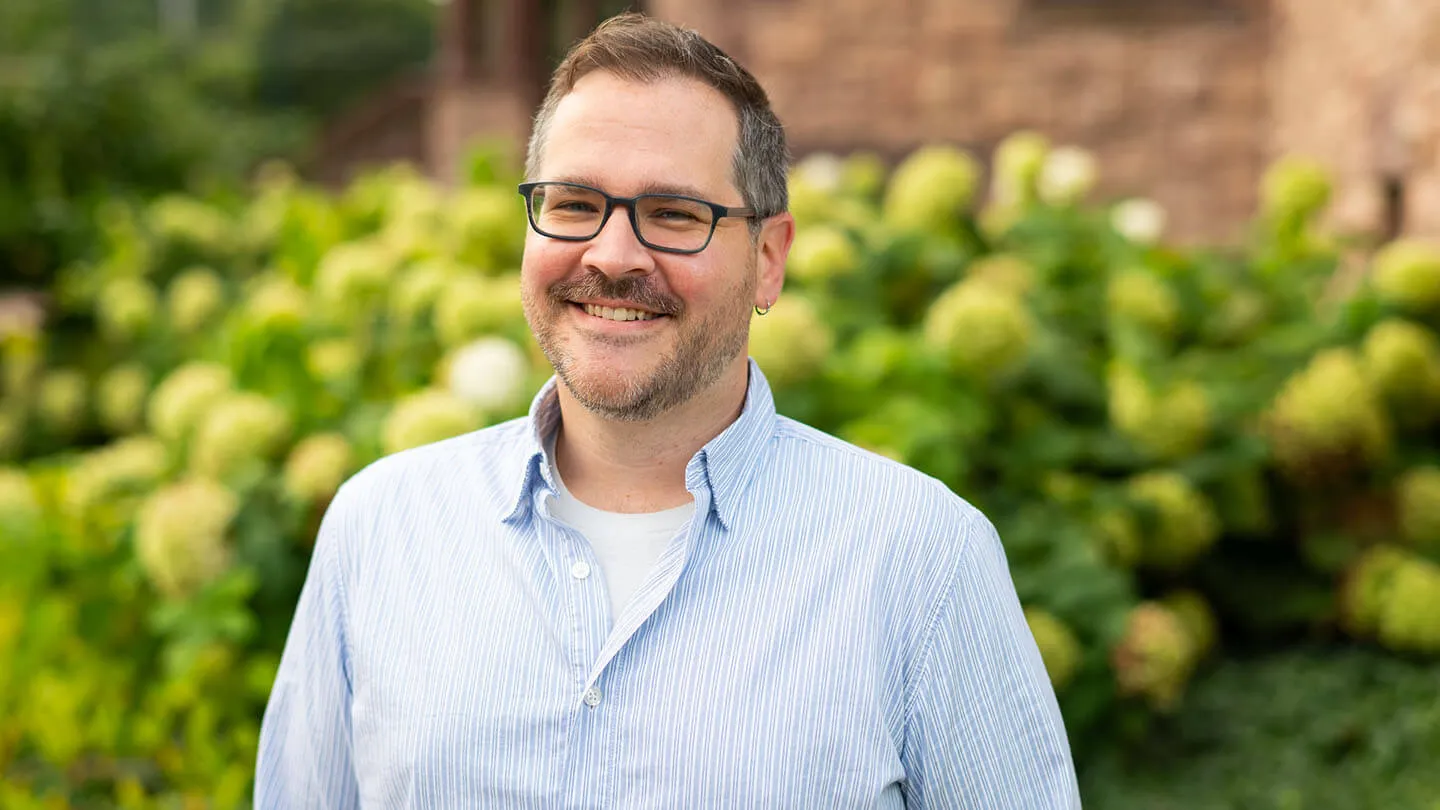Looking out the windows of the Office of Sustainability on the first floor of Marsh Hall is a spectacular view of Mount Mansfield. Interim director of sustainability Caylin McCamp works here, and the scene offers a daily reminder of her connection to Vermont—skiing the slopes at Sugarbush is a favorite pastime—along with her passion for creating a sustainable campus community.
Growing up in a suburb of Pittsburgh, Caylin was inspired by a high school AP course in environmental science. “After taking that class I decided to become a vegetarian,” she recalls, a choice which her family accepted with a mix of encouragement and skepticism.
With relatives in Vermont, Caylin understood the culture of sustainability within the state. After learning more about UVM’s strong environmental studies program, Burlington rose to the top of her list of places where she could earn a degree while living just a few miles from the slopes.
She earned her bachelor’s and her master’s degrees through the Rubenstein School of Environment and Natural Resources, where an intriguing class inspired her to begin exploring campus sustainability. This dovetailed neatly with her job as an Eco-Rep—a group of undergraduate students who encourage peers to make sustainable lifestyle choices.
“It was the first time I felt like I was seeing applied sustainability in action,” she recalls. “It’s when I realized that’s what I wanted to do with my career.”
She’s been a key player in shaping the UVM community ever since. After four years as sustainability manager at UVM Dining, she became a project manager in the Office of Sustainability where she contributed to UVM’s growing reputation as an environmental leader in higher education. She manages the Eco-Reps program she once participated in; oversees various sustainability tracking systems that measures progress towards UVM’s sustainability goals; and coordinates the Sustainable Campus Fund which converts sustainability ideas into action.
Caylin’s work has contributed to UVM’s gold ranking in sustainability by the highly regarded Sustainability Tracking, Assessment & Rating System (STARS), and the university’s ambitious Comprehensive Sustainability Plan (CSP) which sets a goal of reaching carbon neutrality by 2030.
“I really can’t think of a program or an initiative in our office that Caylin hasn’t contributed to in some way,” says one of her coworkers. “As the office has grown to include specialists in transportation, waste, and energy, we all end up relying on her knowledge and skills.”
In 2024, she stepped up to lead UVM’s Office of Sustainability as interim director. “I consider myself a sustainability generalist with experience in a lot of different areas. That broadness is something I can draw on in this role,” she explains.
Caylin continues to live the mission in her home life. She and her partner live seven miles from campus, a commute Caylin bikes much of the year, in a tiny house they built together. It’s a 192 square-foot home on wheels, though they’ve never pulled up stakes since settling in eight years ago. When the COVID pandemic landed, they expanded to a ski condo so they could work at home more comfortably. But the tiny house is still their primary residence.
“It forces you to evaluate what things you really need, and be more thoughtful about resource use,” she says. “You take shorter showers because you’re the one that has to fill up the water tank.”


